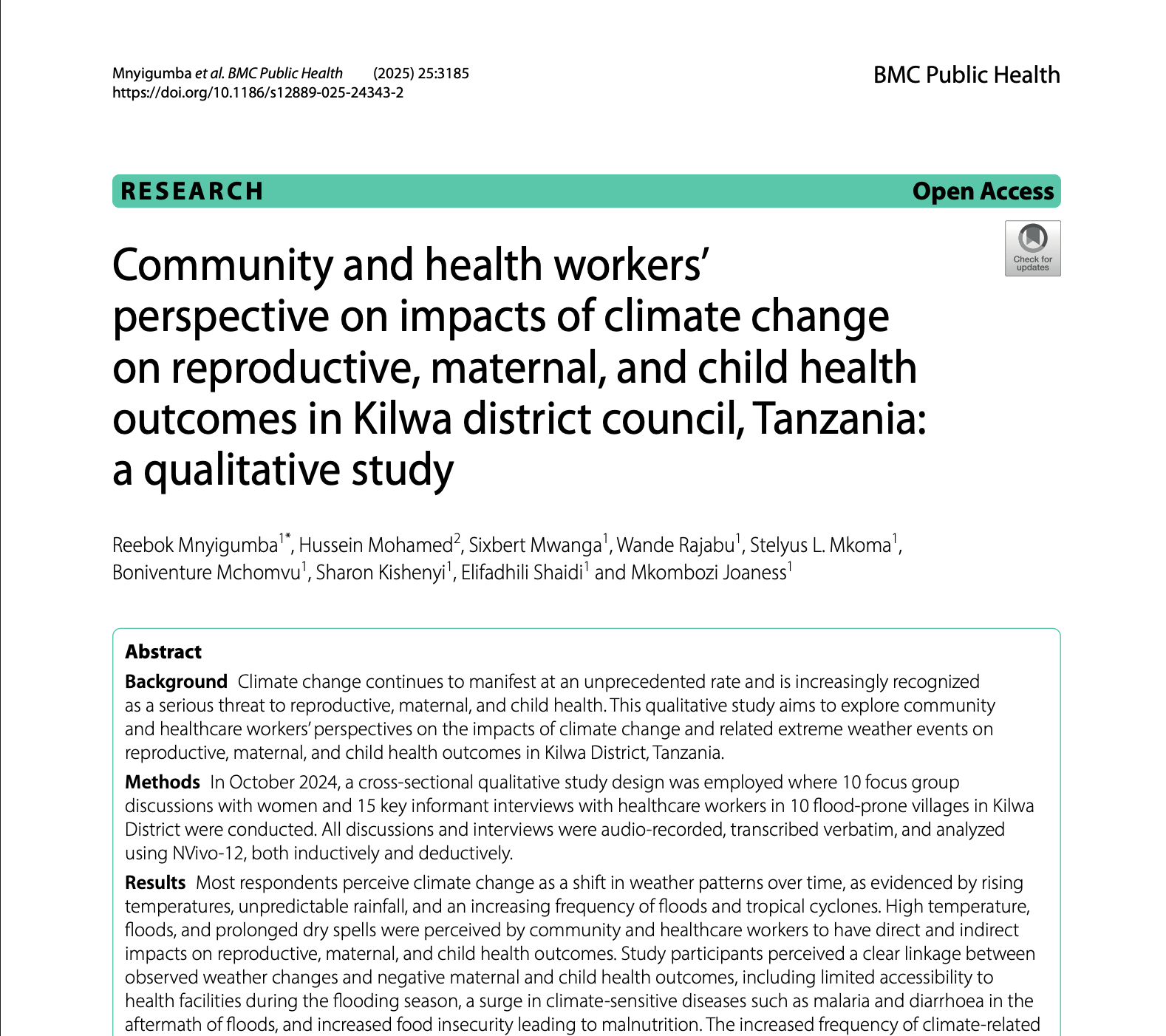
Community and Health Workers’ Perspectives on Impacts of Climate Change on Reproductive, Maternal, and Child Health Outcomes in Kilwa District Council, Tanzania: A Qualitative Study.
Published in BMC Public Health Journal , September 2025
Authors: Reebok Mnyigumba, Hussein Mohamed, Sixbert Mwanga, Wande Rajabu, Stelyus L. Mkoma, Boniventure Mchomvu, Sharon Kishenyi, Elifadhili Shaidi, Mkombozi Joaness
Overview
Climate change is increasingly affecting health systems and communities in Tanzania. This study explored how changing weather patterns, including floods, droughts, and heat, are influencing reproductive, maternal, newborn, and child health (RMNCH) in Kilwa District. Communities and health workers reported rising cases of malaria, diarrhoeal diseases, food insecurity, and challenges in accessing health services due to damaged roads and facilities. Women and children are among the most affected groups, facing both health and social risks linked to climate shocks.
What the Study Did
Researchers conducted a qualitative study in Kilwa District, Lindi Region, in October 2024. Data were collected through ten focus group discussions with community members and fifteen key informant interviews with health workers. The aim was to capture lived experiences and professional insights on how climate variability is impacting maternal and child health.
Participants described how floods, droughts, and cyclones have damaged infrastructure, disrupted antenatal and delivery services, increased vector- and water-borne diseases, and worsened nutrition through reduced crop yields. Women also reported increased workloads, psychosocial stress, and gender-based violence during extreme weather events.
Why it Matters
The findings highlight how climate change is not only an environmental issue but a growing public health threat, particularly for pregnant women, mothers, and children. By documenting the direct impacts from those most affected, the study provides evidence to inform national climate adaptation efforts such as the Health National Adaptation Plan (HNAP) and Tanzania’s NDCs. It emphasizes the need to strengthen health systems, integrate gender-responsive approaches, and ensure that RMNCH services remain accessible and resilient during climate shocks.
Recommendations
The authors recommend:
- Integrate health into climate adaptation plans to ensure RMNCH services are prioritized in climate response and disaster preparedness.
- Strengthen health infrastructure and transport systems to maintain access during floods and extreme weather.
- Enhance disease surveillance and prevention for malaria, diarrhea, and other climate-sensitive diseases.
- Promote food and nutrition security for mothers, pregnant women, and children in affected areas.
- Mainstream gender equality and protection to address the increased burden and vulnerabilities women face during climate-related crises.
Download the full publication here
